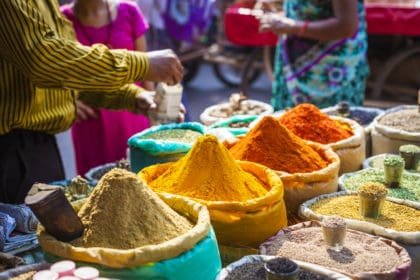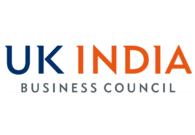The role of Soft Power in the UK India trade relationship
UKIBC held a roundtable on the role of soft power in underpinning our ability to do business between the UK and India, kindly hosted by one of our members, APCO Worldwide.

This long-read, based on the views expressed by our roundtable participants, explores the concept of soft power and why UK businesses cannot afford to ignore it going forward.
What is Soft Power and why does it matter to you and me?
Key elements of soft power include enterprise, government engagement, education, tourism, technological advancement, branding (for example nation branding and city branding), cultural institutions like the British Council, BBC, and the Nehru Centre.
Soft power is also the power of attraction (tourism, holidays, cuisine, language) and the power of symbolism. Indeed, one of the key reasons placing the UK at the top of the Portland Soft Power Index in 2018 is the recent royal wedding of Harry and Megan and monarchy more widely.
In the words of Shashi Tharoor (Indian politician, writer and former UN Deputy Secretary General currently serving as Member of Parliament) – ‘whoever has the better story wins’. A country’s foreign policy, its values and its business climate also contribute to the strength of a country’s soft power. Government decisions, policies and willingness to cooperate are not driven by economic factors alone but are heavily influenced by intangible aspects such as questions of identity, national pride, and stories of the past and present. It’s another name for something that has always been important to government – legitimacy and trust.
Soft power and hard power are inter-related. However, soft power is more important today than ever before as we live in a rapidly changing digital era where technology shifts and virtual communities allow opinions and perceptions to be formed faster and on a much wider scale.
On the flip side of all this is dark power – the world of cyber manipulation which is used to undermine the legitimacy of governments, companies, individuals and, indeed, products and services. What makes it worse is that these cyber threats are very difficult to track and understand and yet have long lasting negative impacts. Companies work very hard to build trust amongst consumers but because of cyber manipulation, this trust can be eroded in a flash. No one really controls this story and, what’s worse, is that the different ways in which factual stories can be undermined have proliferated.
Soft power is much more complex to produce and sustain over time – it is the realm of values, ideas, images, stories all in an age where each of these aspects can be portrayed, disseminated, and destroyed within seconds. The trust and legitimacy issue is connected with reputation. The power of public opinion can bring even the greatest heroes to their knees.
Coming back to Shashi Tharoor’s statement of the better story – the question arises as to who is controlling this story. For example, the 2016 US elections had huge consequences on US’s soft power. It has been claimed Brexit was entirely the result of a failure of the EU’s soft power to convince enough UK citizens. India’s soft power has a lot to do with its democratic, secular, open society but, as with any reputation, this needs to be actively sustained and events that challenge this reputation can quickly change perceptions.
In China as well, one sees a re-emergence of Chinese nationalism and its assertion of itself across the world which has raised concerns in many countries especially those in China’s shadow. Since government engagement is a key aspect of soft power, the choices that government make have a major impact on the image that a country is trying to project for itself.
The rise of nationalism and regionalism means that domestic politics are gaining in prominence these days. However, the stakes of domestic politics require international efficacy and are dependent on global relationships.
What’s the difference between soft power and propaganda? They are related but the difference is that soft power is authentic while the other is not. We tend to be distrustful of propaganda. In fact it is worth noting that the term ‘Public diplomacy’ originated from the need of Americans not to use the word ’propaganda’. By comparison, soft power has to be authentic and honest.
Digitalisation and technology can be leveraged to amplify soft power assets and build mutual respect. But, as mentioned previously, they can also be misused to manipulate public opinion and undermine reputation and trust.
Soft Power in India
India, for its part, has a long way to go in maximising its soft power strengths and projecting its full capabilities.
Take the image of Indian IT firms in the UK. If you are a member of one of these firms, you know that it is a state-of-the-art business. But if you are an outsider, you may tend to mis-interpret it mostly functioning as a call centre/BPO.
This is not just the case with the Indian IT sector but India Inc as a whole. The Indian corporate world needs to harness its soft power more effectively and project itself better in the international sphere.
However, in recent years, significant steps have been taken by both the Indian and UK governments to address this issue and positively change perceptions of this sector. The UK India Technology Partnership announced by both PMs when Modi visited the UK earlier this year in April is a high profile attempt to showcase and link up the specialist technological expertise of both countries to mutual benefit. Flagship conferences like the India-UK Tech Summit in 2016, the India-UK Createch Summit 2018 in Mumbai, and the upcoming Future Tech Festival in December 2018 all focus on celebrating innovations in both countries and illustrating how the UK and India are leaders in the area of cutting-edge technology.
Roundtable participants noted that India currently does not have the high-level of self-appreciation the wealth of its potential soft power assets should warrant. Failure to appreciate its own legacy, heritage, scientific achievements, and crafts, to name a few aspects of India’s social wealth, to the same degree as other nations would explain why so many magnificent Indian buildings and structures are allowed to exist in a state of disrepair. Many traditional handloom industries and their master craftsmen are for the most part neglected. Participants noted that to some extent the ‘Incredible India’ campaign came out by accident and not as a result of dedicated effort to understand and value the country’s assets.
This is important as in order to project the right level of soft power, it is crucial to have a sophisticated perception of one’s own national identity. To gain respect from others, one needs to respect oneself. And this is where India needs to go further. The irony is that outsiders perceive India to have wonderful soft power, much more than other countries, but Indians themselves do not tend to perceive their country in the same way and this is key to ensuring durable and effective use of these assets as defined by India itself rather than ad hoc through the eyes of other nations.
At the Government level, India has missed several opportunities to project itself as a global actor — for example it has not taken up its potential leading role on important global issues like migration and protectionism for example. Taking a stance on these debates would signal to the world that it is an international actor on these stages – one to be taken seriously on these stages much like it is very much starting to be on climate change. Therefore, it is in India’s self-interest to become a leading player in shaping the narrative.
Soft power is a projection outwards and it is likely that one of the reasons India has chosen not to get involved in these international arena is because a lot of Indian attention and mind is focused inwards to its complex political system and its frequently occurring regional elections.
The future of UK-India relations underpinned by Soft Power
The UK and India’s shared history and shared past dates back hundreds of years – both countries have benefited from a cross fertilisation of ideas, and culture and anecdotes, yet there is still not enough mutual understanding between the two counties.
The UK-India year of culture in 2017 attempted to rectify this and was useful to some extent, but certainly not transformative or a game-changer because of the political context in which it occurred. It took place at a time during which Britain was planning to pull out of the EU with issues of migration casting a cloud. All the while in India it has been social movements pushing nationalism and anti-Empire rhetoric, as well as the belittling of India’s Mughal past and its minorities. Hence it wasn’t the most propitious climate in which to hold the UK India year of culture.
That said, Indians always perceive UK products and services to be of high quality – this is true whether in the retail sector or in higher education. For example, some UK retailers have successfully used the British flag to sell their products in India and establish their brand more effectively. Here soft power projection has worked well.
In the Higher Education sector, UK’s soft power declined sharply when the rules around post study work visas changed. This led to the number of Indian students choosing to study in the UK plummeting from almost 23,000 to 12,000. As a result, the UK now needs to work much harder to make itself more attractive to the Indian market. In the case of the UK, not having an integrated relationship between the Higher Education sector and government was part of the problem that led to this development.
In India on the other hand, the central Government exercises much more control in the HE sector and yet it is still unable to attract the number of international students its aiming for. Currently there are 48,000 international students in India, some way from the target of 200,000 by 2020. This would require deploying their soft power much more effectively and, to do this, there needs to be an integrated strategy with industry, government, and meaningful foreign collaboration to make this happen. This is case that the UKIBC has taken up in the launch of its recent report ‘Beyond the Top 200 – Effective Collaboration in Indian Higher Education’.
Regardless of the sector, soft power underpins our ability to do business. A nation’s soft power is directly linked to the flow of trade and investment into the country. In essence, the greater the soft power, the more the trade and investment. This is because enhancing a nation’s soft power (comprising of its national culture, values, image, foreign policy) makes it more attractive and trustworthy to other countries, making them feel safer and more inclined to undertake trade and investment.
For the UK-India trade and investment relationship to flourish, we cannot rely on old historical ties but must forge dynamic new links by harnessing both countries’ soft power assets.

 By Tara Panjwani
By Tara Panjwani 




